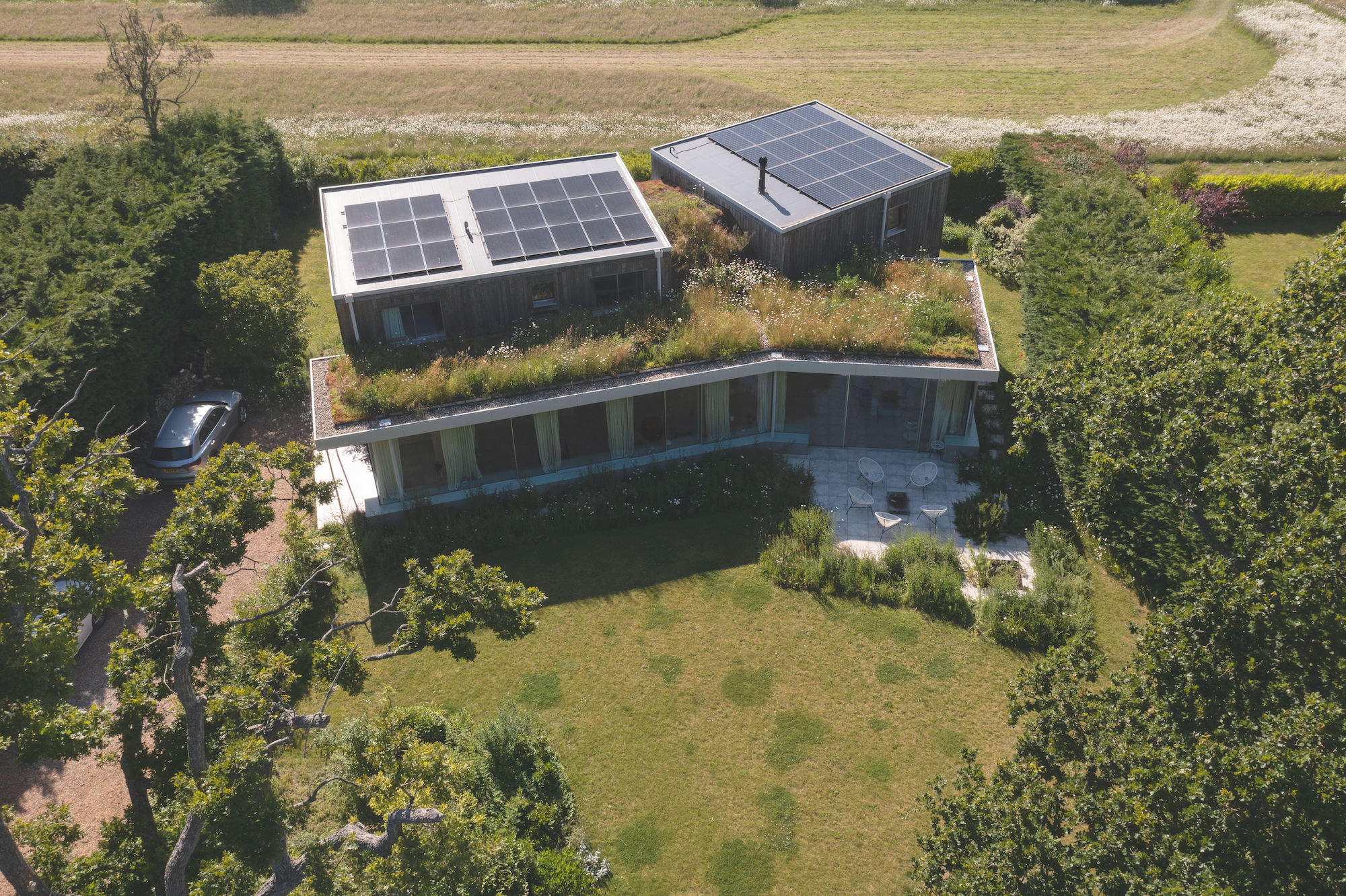Permitted development rules relaxed to allow solar panels on flat roofs without planning permission
As part of the government's plans to increase solar panel installations permitted development rights have been extended for those looking to install on flat roofs

Permitted development rights for solar panels have been extended with planning permission no longer being required for installation on homes with flat roofs.
The changes will aim to empower more property owners to effortlessly install solar panels on their roofs, bypassing the often time-consuming planning system.
We look at the exact changes that have been introduced, why these were introduced and the reaction to the decision by industry experts who look at the impact this decision could have.
What are the changes?
The government has extended permitted development rights for solar panels to make it hassle-free for more property owners to go solar.
The changes allow homeowners with flat roofs to install solar PV (photovoltaic) panels without having to gain planning permission first.
Plus, the need for businesses to get planning permission for solar panels that generate over 1MW of electricity has also been removed, making it easier and quicker for organisations to go solar as well.
The government also emphasises using developed land for solar panels. The updated rules even make it simpler to install panels above car parks, as long as they're more than ten meters away from homes.
Get the Homebuilding & Renovating Newsletter
Bring your dream home to life with expert advice, how to guides and design inspiration. Sign up for our newsletter and get two free tickets to a Homebuilding & Renovating Show near you.
Why are the changes being introduced?
The updated rules seek to boost the use of solar panels by removing planning obstacles, helping property owners cut energy bills and reduce emissions.
Under the current system, those in the planning process endure an eight-week wait and extra costs whilst they wait to install their panels.
The revised regulations aim to encourage widespread adoption of solar panels, allowing property owners to cut down on energy bills and contribute to reduced harmful emissions.
These changes also align with the government's broader efforts to speed up planning processes, as seen in the recently introduced Levelling Up and Regeneration Act.

Lee Rowley, the Housing and Planning Minister, said: "We must make sure our homes are fit for the future and can help us meet our net zero ambitions.
"By cutting red-tape in the planning system we can make sure homeowners and businesses can install solar panels without being held up by costly delays. Crucially, these permitted development rights are still subject to important conditions, including their use in conservation areas."
Graham Stuart, Energy Security and Net Zero Minister, stated: "Today we are cutting through red tape to make it easier for businesses to install solar panels on their rooftops.
"Removing the 1MW restriction for industrial rooftop solar will help us meet our target of 70GW of solar power by 2035 while supporting hundreds of long-term skilled British jobs, bolstering our world-leading renewables sector and reducing bills for consumers with panels."
Decision labelled 'an absolute no-brainer'
Reaction to the planning reforms from industry experts has been positive claiming the decision provides a bright future for the solar industry going into 2024.
Phil Jolly, Account Manager at Van der Valk Solar Systems, commented: "At last, the days of navigating a labyrinth of bureaucratic hurdles and red tape to install solar panels on flat roofs are finally over.
"An absolute no-brainer in my eyes, I have been saying for a while that this is a nonsense and I know they'll be a lot of my contacts that will be overjoyed to hear this news going into 2024."
Chris Hewett, Solar Energy UK chief executive, said: “The potential of installing solar power on large commercial rooftops is vast, its prospective capacity having been estimated at 15GW across the country.
“So eliminating one of the stumbling blocks on the way to fulfilling that opportunity is extremely welcome, helping to make British businesses more competitive by slashing energy bills, bolstering the economy and pushing us further towards net zero.”
The Town and Country Planning (General Permitted Development etc.) (England) (Amendment) (No. 2) Order 2023 will come into effect on 21 December 2023.

News Editor Joseph has previously written for Today’s Media and Chambers & Partners, focusing on news for conveyancers and industry professionals. Joseph has just started his own self build project, building his own home on his family’s farm with planning permission for a timber frame, three-bedroom house in a one-acre field. The foundation work has already begun and he hopes to have the home built in the next year. Prior to this he renovated his family's home as well as doing several DIY projects, including installing a shower, building sheds, and livestock fences and shelters for the farm’s animals. Outside of homebuilding, Joseph loves rugby and has written for Rugby World, the world’s largest rugby magazine.
